Auschwitz through the eyes of Doctor SS
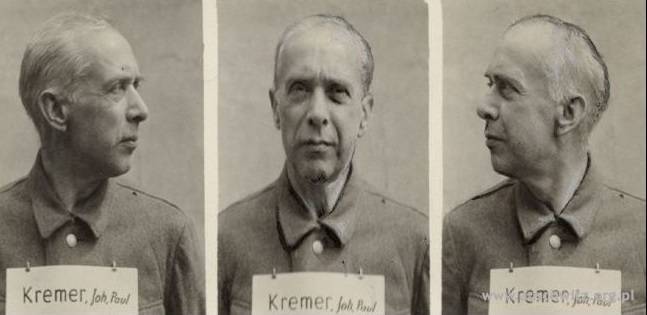
The diary of the German doctor Johann Paul Kremer is the only authentic document describing the everyday life of the SS concentration camp “online” (all the others are memories made after the war). Academic scientist, he left the university to experiment on prisoners. And after - also easily returned to science.
There are three large documents describing the livelihood of the Auschwitz concentration camp - the memories of its commandant Rudolf Hoess, the petty servant of Peri Broad and the personal diary of SS physician Johann Paul Kremer. There are still numerous memories of prisoners, lawsuits of the Polish and German authorities. They are united by one thing - they were all made after the end of the war (Hess and Broad generally made notes in prison, awaiting conviction for genocide). It is clear that many of the papers included the emotions of the victims or, on the contrary, the desire to shield oneself (Goess and Broad). A significant part of the interrogation of Polish investigators in general was carried out in the 1960-ies, when the defendants of the cases have forgotten a lot.
And only the diary of Dr. Johann Paul Kremer, a professor and at the same time a doctor of Auschwitz, a member of the NSDAP and an SS officer, can be considered an impartial document. He began to keep his diary in November 1940, the last entry is dated 11 August 1945. The records were accidentally discovered by a member of the English commandant’s office during a search of his house (this was a standard check by the occupying authorities — then many Germans were looking for weapon). Kremer’s diary has become the main piece of evidence against him for crimes against humanity.
On the personality of Kremer it is worthwhile to dwell on this, since her consideration allows us to understand what the average German of the Hitler era was like, who without hesitation executed the most terrible orders. It turns out that he was guided by the principle "This is a normal job, nothing more."
Kremer, moreover, was not "fooled by propaganda", went to dirty business not because of need, was not mentally ill. Moreover, he is an honored scientist, a respected member of the academic society of the country.
Kremer was the oldest worker at Auschwitz: in 1942, when he went to work there, he was 58 years old.
Johann Paul Kremer was born in 1884 year in a large family of a wealthy landowner (Bauer). He volunteered to serve in the army, and therefore received a high school diploma only after demobilization, in 1909, in 25 years. Those. a true patriot of Germany. In the 1914 year, immediately after graduating from the University of Berlin, he became a Ph.D. At the same time he studied medicine and biology. During World War I receive a diploma of a doctor, as well as a doctor of biology. At this time, he works in the hospital, treats wounded soldiers. In 1919, Kremer becomes the doctor of medicine. Those. by this date he is a doctor of three sciences: philosophy, medicine and biology.
In 1929, he passed the exam for the title of associate professor of anatomy at the University of Müntzer, the subject of his study is heredity. In July, 1932 of the year becomes a member of the Nazi Party, i.e. before Hitler came to power. In 1935, he joins the SS, getting the rank of lieutenant.
When World War II began, he is a university professor in Münster. In 1942, they call him in the SS and send him to work at Auschwitz on 3 for the month to replace several doctors who have served time on vacation or for temporary work in other camps. After a short service in a concentration camp, he returns to the university and continues to do his usual scientific things.
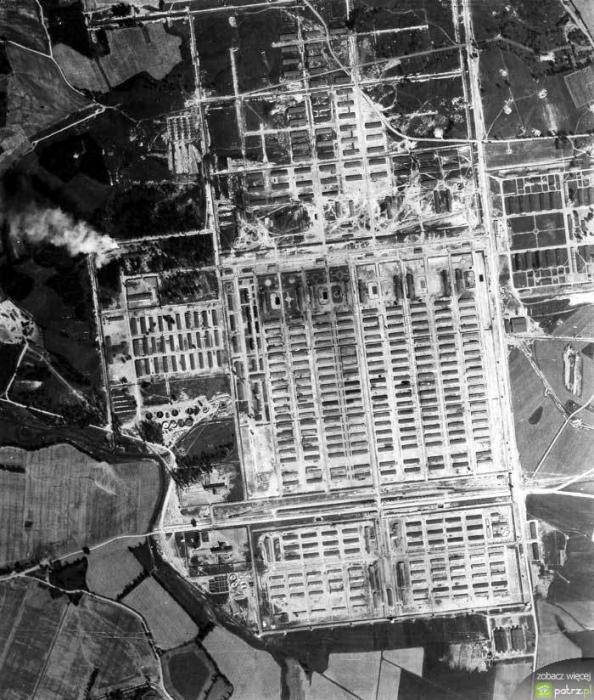
After the British discovered his diary, Kremer was extradited to the Polish authorities (Auschwitz was located on the territory of this state). 22 December 1947 Polish court sentences him to death, but because of his old age (he is already 63), she is replaced by imprisonment. January 10 1958, he is released from a Polish prison, and he returns to Germany.
In Germany, Kremer launched a noisy campaign - “The Poles have slandered me!”. But the hype led to the opposite effect: in Germany he was again sentenced to 10 years in prison, but taking into account the departure of the previous term. Those. Kremer is not put in prison and left free. This procedure was needed only in order to formally deny him the title of professor and prohibit teaching at the university on the basis of the verdict of the German court.
During the 3-month service at Auschwitz, Kremer sent a man to the 12291 gas chambers. This is not counting those who, under his orders, were killed on an “individual basis,” as was customary in Auschwitz, with a prick of phenol in the heart.
But the most disgusting fact during service in a concentration camp was that it used “existing circumstances” for scientific purposes - for example, cutting the liver, pancreas, or spleen from a living person. These organs were the material for studying the biological changes that occurred in the human body under the influence of hunger.
In his diary, Kremer wrote down the events and feelings of the day. Entries are full of everyday details, stories about relationships with relatives, recipes and just as bloggers would call today, “lytdybra”. We list part of Kremer's records relating to the time of his service in the Auschwitz concentration camp (or Auschwitz - as the Germans called him).
August 30 1942
Departure from Prague to 8.15. Arrived in Auschwitz in 17.36. I am located in a hotel room in the house of the SS troops.
August 31 1942
The climate is tropical - 28 degrees in the shadows, dust and clouds flies. The casino is beautifully stocked. Tonight was liver on 40 pfenning, stuffed tomatoes, etc. The water is contagious, so I drink mineral water Mattoni, which we give out. The first vaccine against typhus. Photo for official ID.
1 September 1942
Sent to Berlin order for an officer's cap, belt and suspenders. After lunch, he was present at the gazovany one of the blocks of the cyclone B, which was supposed to destroy the lice.
2 September 1942
At 3 in the morning I personally participated in a special operation for the first time (on that day 957 Jews were brought to Auschwitz from the Drancy concentration camp in France, of which only 39 were left in the camp, the rest died in the gas chambers on the same day - Interpreter Blog ). Compared to her, Dante's hell seemed almost like a comedy.
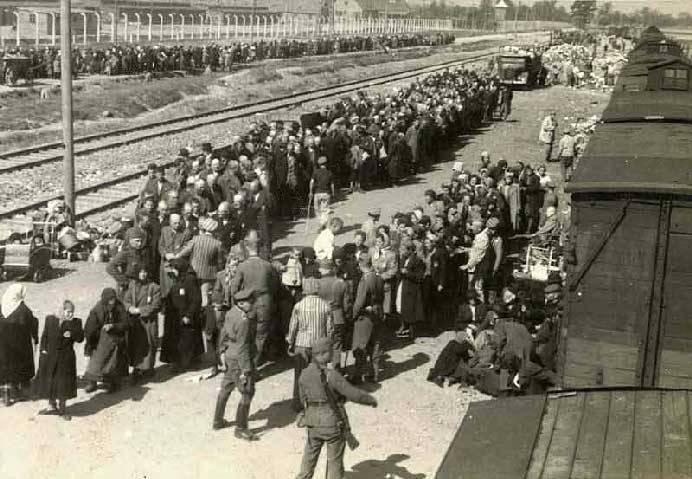
4 September 1942
Against diarrhea: one day decoction and tea with mint, and then a weekly diet; and between absorbing coal and tanalbin. There is a noticeable improvement.
5 September 1942
Today at noon on a special operation in a Muslim women's camp (Muslim women - in the camp slang are super-exhausted people - BT): horror of horrors (on this day in the Brzezink women's camp, 800 prisoners - BT were sent to gas chambers). Hauptsharführer Tilo, the garrison doctor, was right today, telling me that we are here with the anus of the mundy (anus of the world).
In the evening around 8 hours again on a special operation, transport from Holland (on this day 714 Jews were brought from the Westerbork concentration camp in Holland to Auschwitz, of which only 53 were left in the camp, the rest were killed in gas chambers - BT ). Participating in this special get: 200 gr. vodka, 100 gr. sausages, 5 cigarettes and bread. Therefore, people tend to participate in such operations. Today and tomorrow (Sunday) service.
6 September 1942
Today is a great lunch: tomato soup, half chicken with potatoes and red cabbage (20 fat), sweet mousse and very tasty vanilla ice cream. After the meal, the first meeting with the new garrison doctor, Obersturmführer Wirts, from the city of Waldbröl.
A positive impression on me was made by the fact that above the cabinet of the camp commandant I read the slogan written in huge letters: “Cyclists, get off!”. In the office of our hospital SS hangs a poster:
When in life you are lucky / see it, nod their heads and pass by; / but no one will forget, / if you ever miss!
In the evening, around 8, in a special operation (on this day, the 981 Jew was brought to Auschwitz from Drancy concentration camp in France, the 54 people were left in the camp, the rest were killed in the gas chambers on the same day).
7 September 1942
Today is rainy, cool weather.
9 September 1942
This morning I received from my lawyer in Münster, Prof. Dr. Gallermann, an extremely joyful event that on September 1 I got a divorce from my wife. Then, as a doctor, he was present at the punishment of 8 prisoners with prisoners, as well as during the execution of prisoners with small-caliber weapons. Got soap flakes and two bars of soap. At noon, in front of the SS hospital to my bike (the administration encouraged the staff to move around the camp on bicycles, bicycle paths were made - BT) some type of civilian runs and asks him to tell him if I’m not a government adviser Gainer from Wroclaw, to whom I am extraordinarily look like This man was with him in the army during the First World War. In the evening, again at a special operation (on this day, a train with 893 Jews arrived from the Westerbork concentration camp from Holland, 107 people were left in the camp, the rest were killed in gas chambers - BT).
10 September 1942
In the evening I was on a special operation (a train with Jews from the Malin concentration camp in Belgium - BT).
17 September 1942
Ordered in Berlin universal raincoat. To order attached a warrant for a protective raincoat. Together with Dr. Meyer was today in the women's camp.
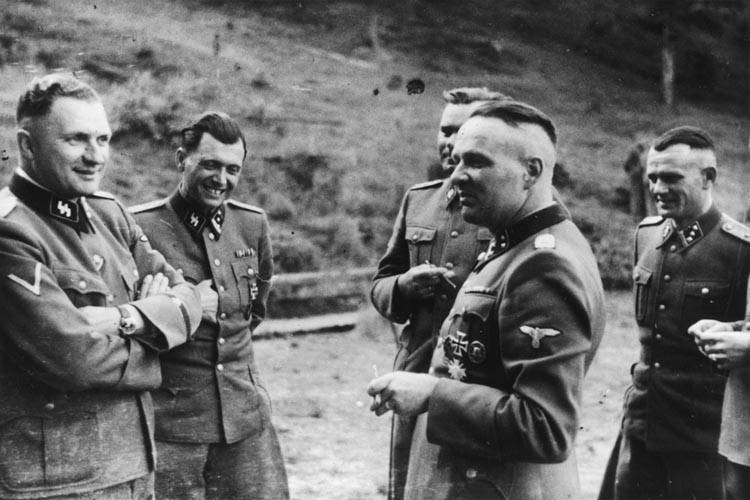
20 September 1942
Today, after lunch from 3 to 6, the concert of the prison chapel was listening, there was great sunny weather; the conductor is the conductor of the Warsaw State Opera. Xnumx musicians. For lunch there was pork, roasted tench in the evening.
23 September 1942
Tonight he took part in the spirit of special operations (trains with Jews who arrived from Slovakia and France; as usual, most of the prisoners died on the same day in gas chambers - BT). In the evening at 8, dinner with obergruppenführer Paul at the officer casino, gala dinner. Fried pike, coffee, good beer and sandwiches were served.
27 September 1942
This afternoon, from 16 to 20 hours, a friendly club meeting with dinner, free beer and smoking. Speech commandant Hess, musical and theatrical performances.
30 September 1942
Tonight was present at a special operation. I learned that there are 6720 hectares of field crops at the camp and 112 hectares are occupied by fishery ponds.
October 3 1942
Today, he secured absolutely fresh material from the human liver, spleen, and pancreas, and also lice, taken from patients with typhus.
October 6 1942
Commandant Hess fell from his horse.
October 7 1942
Present at the special operation (new arrivals and Muslim women). I replace Entress in the men's camp (examination of patients, etc.).
October 9 1942
Sent in Münster package with 9 pounds of soap. Rainy weather.
October 10 1942
Took and secured samples from fresh corpses: liver, spleen and pancreas. I ordered the prisoners to make a facsimile with my signature. The first time in the room flooded.
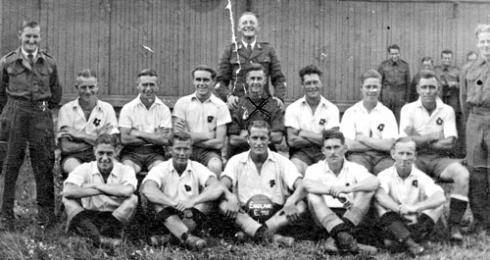
October 11 1942
Today for dinner there was a rabbit with dumplings and red cabbage for the 1.25 brand.
October 12 1942
Attended a special operation (1600 man from Holland). The horrific scene was before the last bunker!
October 13 1942
Arrived Untersturmführer Vetter. He was present at the execution of the punishment, then at the death penalty of 7 Polish citizens.
October 14 1942
Received from Berlin protective coat (52 size). He wrote to the university rector in Münster, asking when the winter semester begins.
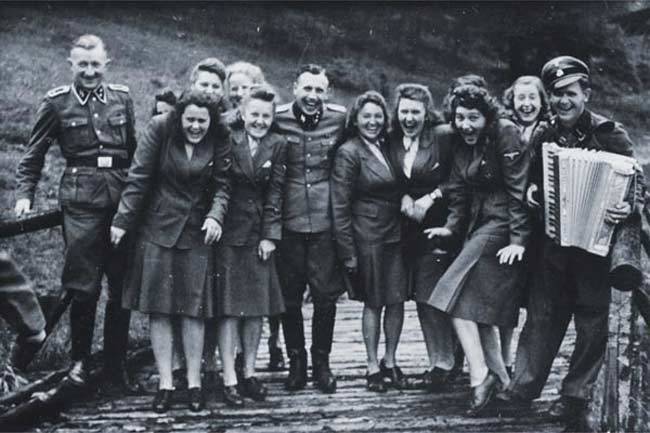
October 15 1942
Tonight is the first frost, after dinner again sunny and warm. He took absolutely fresh material from the liver, pancreas and spleen from the icteric patient.
October 16 1942
At noon, sent the parcel. He ordered to photograph a Jew in the camp with his fingers fused together (the same lack of his father and uncle).
November 1, 1942
Went to 5-day vacation, fast train to 13.01 in Prague. Dear it was raining.
November 2, 1942
Lunch at the German House in Prague. Later he got his galoshes on Gerstengasse and returned for dinner with meat at the officer casino. Hauptsturmführer Rutner told me about his new gland removal technique.
November 14, 1942
Today is a concert at the camp club on Saturday (great!). The dancing dogs, two midget roosters, a packed man and a group of cyclists brought special pleasure.
November 15, 1942
Before lunch, present at the punishment.
November 17, 1942
Sent a small suitcase to Frau Vitseman. The package included: 2 vodka bottles, vitamins and restoratives, razors, soap, thermometer, nail scissors, iodine bubbles, medical alcohol, X-rays, fish oil, envelopes, perfumes, darning instruments, needles, tooth powder, etc. d. Dentist Sauter transferred to Minsk.
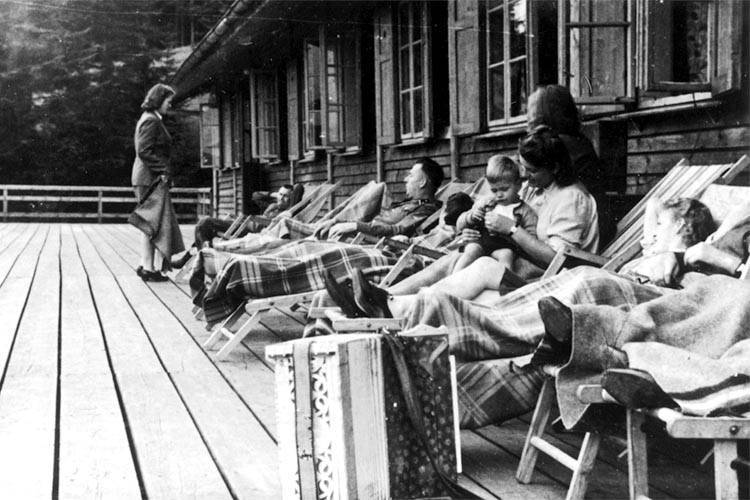
November 20, 1942
Demobilization. Departure via Dresden and Hannover. Arrive in Münster at 6.38. The first time in the new premises of the Department of Anatomy at Westring.
December 1 1942
Today I visited the new district head of the health department, Dr. Fenner, who met me very friendly and appointed me as chairman of the district disciplinary court.
(The diary is cited from the book Auschwitz through the Eyes of the SS, National Publication Agency, 1979, p. 200-219).
(Pictures of Auschwitz workers - in 1944, taken by Karl Hecker, adjutant of the last commander of the camp, Richard Baer. In 1946, an American intelligence officer came across an album from 116 photos in Frankfurt and left it. Recently, he retired long ago, gave the album a gift to the United States Washington States Holocaust Memorial Museum)
Information